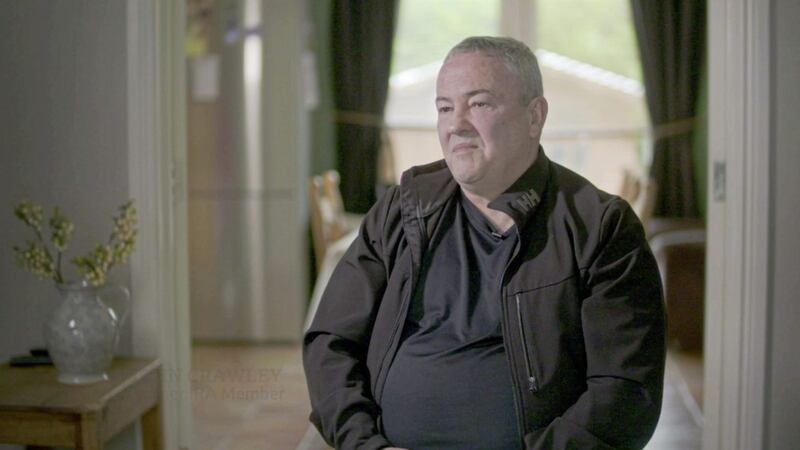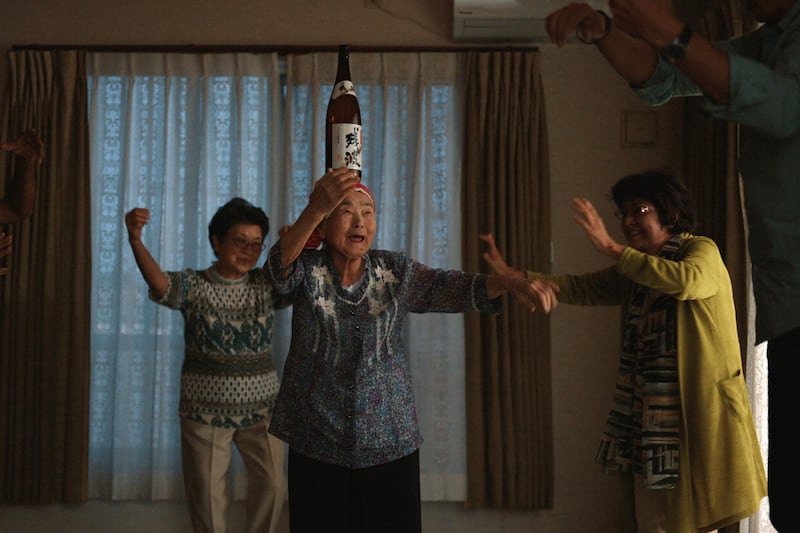Spotlight On The Troubles: A Secret History, BBC 1, Tuesday at 9pm
The seven-part unofficial history of the Troubles came to a conclusion this week with a pacey trip through the peace process years.
It’s the part most recent in the memory so the reminders of all the twists and turns of ceasefires, agreements, statements, Stormont and decommissioning seemed like a lifetime from the black and white destruction of the early years.
There were many new things in episode seven. IRA bomber and former US marine John Crawley revealed that the IRA planned to take out the electricity power supply for south east England before the second ceasefire.
It didn’t happen, he said, because he and other IRA operatives were tracked down and arrested.
Crawley also ponders, without obvious malice, why the security service didn’t kill his team.
Described as one of the leaders of the IRA’s “A-team” by the British, Crawley says: “I wondered why they didn’t kill us, because we had men tooled up … they knew where we were going and to this day I don’t know why they just didn’t take us out of it, because coffins coming back on the ferry would have been a nice message to anyone else looking to go and believe me there wasn’t a lot of people putting up their hands looking to go to England.”
There were also interviews with Louie Johnston and Abbie Graham, the children of police officers John Graham and David Johnston who were both seven-years-old when the IRA shot dead their fathers in appalling circumstances five weeks before the second ceasefire.
Abbie said the most difficult part for her was the way republicans “played both sides of the game.”
“Sinn Féin had a political mandate when our fathers were killed. They said the British government needed to remove the obstructions for the talks, but the obstruction for the talks was that the IRA was killing people on the streets.”
Reporter Darragh MacIntyre also revealed that MI5 has a hidden raft of documents which show collusion between the intelligence services and republican and loyalist paramilitaries.
The records were not disclosed to Lord Stevens who led three investigations into collusion with loyalists but were now being uncovered by a team investigating the actions of the British army’s IRA agent, Freddie Scappaticci.
This outstanding BBC series could have doubled in size, such was the scale of the story to tell, but is nonetheless the best explainer that's been produced of this most horrendous period in Irish and British history.
****
World Cup Rugby, UTV, Saturday at 11.15am
The most poignant moment of the TV week was the departure of Rory Best from professional rugby.
The Irish captain left the field after 63 minutes in the incongruous position of getting a standing ovation while his team was losing 34-0.
As with many great sporting careers it was an ill-fitting end to a captaincy of outstanding achievement.
You could only feel for the 37-year-old as he pulled off his red scrum cap for the last time and walked towards the touch line with tears in his eyes.
He must have desperately wanted to acknowledge the crowd's acclamation, but I suspect he felt unable to because of the disappointment of Ireland’s performance against the All Blacks.
Thankfully, despite the devastation of losing another World Cup quarter-final, Best was able to return to the field and celebrate a 124-cap career with his family.
But it was the moment of departure from the battle which we will remember. You know you are a legend of the game when even the referee pays tribute.
“Well done on an excellent career,” Nigel Owens could be heard saying as Best walked away.
Well done indeed.








